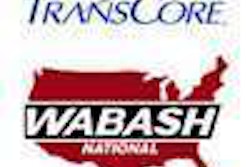Pay, 401(k) match among key targets
As the economic recession continued and perhaps deepened, several publicly traded trucking companies made moves to cut costs as they approached the time to announce their first-quarter results.
Con-way Inc. undertook a series of cost-reduction measures to enhance the company’s position, including a 10 percent salary reduction for members of the senior leadership team, and base wage and salary reductions of 5 percent for all other executives and employees at Con-way Freight and Con-way Inc. The San Mateo, Calif.-based company said implementation of the actions is projected to save between $100 million to $130 million in 2009.
Saia Inc. is making similar compensation cuts in response to deteriorating freight volumes and yields. The Johns Creek, Ga.-based less-than-truckload carrier is cutting the salaries of its leadership team by 10 percent and reducing wages of its hourly, linehaul and salaried employees in operations, maintenance and administration by 5 percent. In addition, the company is reducing annual retainer and meeting fees paid to nonemployee members of the board of directors by 10 percent. The cuts will save about $18 million a year, Saia says.
The company previously had suspended the 401(k) match, effective Feb. 1, saving about $6 million a year.
Frozen Food Express Industries implemented a comprehensive cost-reduction initiative to improve asset utility and reduce many of its nonvariable costs. FFE’s nondriver headcount has been reduced by about 150 positions since Jan. 1, and the Dallas-based company also has suspended its 401(k) matching contributions and is consolidating duplicative efforts within its operating units.
Some of Covenant Transportation Group’s efforts at cutting officer compensation offer an upside. The board compensation committee of the Chattanooga, Tenn.-based truckload carrier on March 31 approved a plan under which individuals who voluntarily forfeited a portion of their 2009 base salary – up to 10 percent – would receive in exchange a special grant of restricted Class A common stock equal to the amount of 2009 base salary forfeited divided by the closing price of the stock two full trading days following release of the first-quarter earnings.
Covenant Group Chairman David Parker, Chief Operating Officer Joey Hogan and Chief Financial Officer Richard Cribbs elected to participate in the program, as did Southern Refrigerated Transport President Tony Smith and Star Transportation President James Brower.
Monthly tonnage rises in February
The American Trucking Associations’ advanced seasonally adjusted For-Hire Truck Tonnage Index edged 1.7 percent higher in February 2009, marking the second consecutive month-to-month increase. Still, the gain over the past two months, totaling 4.8 percent, did not erase the 7.8 percent contraction in December 2008.
In February, the seasonally adjusted index equaled just 106.5, which still is extremely low. Also in February, fleets reported lower volumes than in January, as the nonseasonally adjusted index fell another 2 percent on top of January’s 4.4 percent drop. In February, the nonseasonally adjusted index equaled 95.3. Compared with February 2008, tonnage contracted 9.2 percent, which was the third-worst year-over-year decrease of the current cycle.
In Brief
Surface transportation trade between the United States and its North American Free Trade Agreement partners Canada and Mexico was 27.2 percent lower in January 2009 than in January 2008, according to the Bureau of Transportation Statistics of the U.S. Department of Transportation. January represented the biggest year-to-year percentage decline on record.
American Trucking Associations released the ATA U.S. Freight Transportation Forecast to 2020, which projects freight tonnage and revenue by mode to 2020, as well as the number of trucks that will be needed to move the freight. This year’s edition – which also includes historical data for all modes of freight dating back to 1990 – can be purchased in print, on CD or via downloadable PDF at
www.atabusinesssolutions.com or by calling 866-821-3468.
TransCore (www.transcore.com) says results from its 2009 Broker Benchmark Survey show gross margins declined slightly for freight brokers in 2008 as a result of volatile market conditions. About 500 freight brokerage companies and third-party logistics providers who responded to the second annual survey reported that profit margins averaged 15.8 percent, a 5 percent decline from last year’s average of 16.6 percent.
Class 8 net orders in North America, including exports, totaled 8,594 units in March, up 26 percent from February, according to preliminary data released by FTR Associates (www.ftrassociates.net). Orders were 44 percent below March 2008, however. The research firm said that the increase over the “very low numbers” in January and February is positive, but that there is no sustainable rebound in Class 8 orders “for the foreseeable future.”












